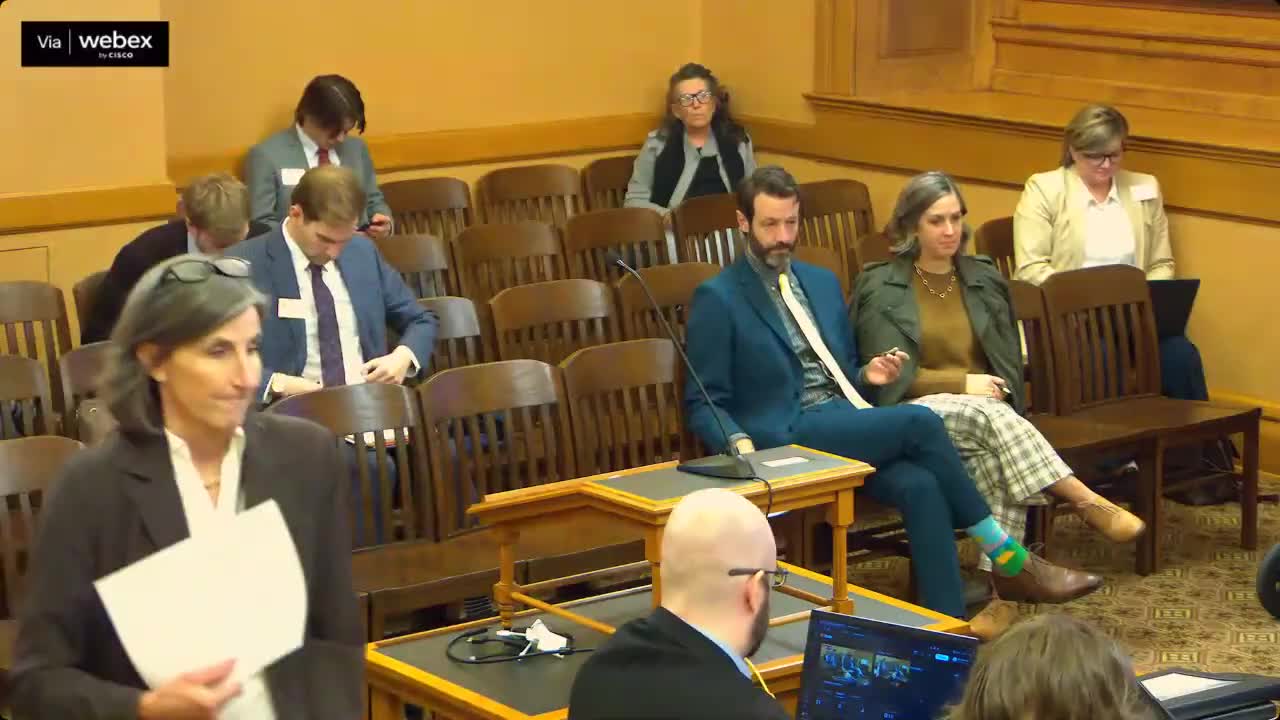Post Audit: Three counties spent $28.8M in 2024 on state-mandated services; county officials say they still need local flexibility
Get AI-powered insights, summaries, and transcripts
Subscribe
Summary
The Legislative Post Audit Committee heard a report showing three Kansas counties spent an estimated $28.8 million in fiscal 2024 on three state-required services, with roughly $9.7 million in offsets; county officials said many of the fees collected are remitted to the state and asked for local flexibility to address service demands.
The Legislative Post Audit Committee heard a review of county costs on duties the state requires local governments to perform, including criminal prosecution, motor vehicle registration and ad valorem tax collection.
Auditors told the committee they "estimate the 3 counties we reviewed spent $28,800,000 providing a selection of 3 services in fiscal year 24," and that those costs were partially offset by "$9,700,000 in state, federal, and user fee funding," according to Andy, the audit presenter.
The audit examined three services in detail and three counties (Johnson, Gove and Labette). For criminal prosecution the three counties spent an estimated $17,300,000 in 2024; motor vehicle registration costs were about $8,300,000; and ad valorem tax collection costs were about $3,200,000 for the three counties combined.
Auditors cautioned the sample is not projectable statewide because the counties were chosen to show variation. "We didn't choose them randomly, and so these results are not projectable," Andy told the committee. He also said much county funding for required services comes from local tax revenue rather than direct state support.
Committee members questioned auditors and county officials about how labor hours were allocated between overlapping duties — for example, when a motor-vehicle registration also triggers personal property tax collection — and auditors said counties generally provided estimates that aligned across the three counties. Andy said the team compared those estimates to other counties and to the County Treasurer's Association to gain confidence in the figures.
Johnson County Treasurer Tom Franzen told the committee county treasurers are a point of collection for many agencies and keep only a fractional share of the registration revenue. "Of the pie... about 85% of those fees do not stay local," Franzen said, explaining much of the $34,000,000 collected by the three counties in registration-related fees is remitted to the state or other jurisdictions while counties retain roughly $5,000,000.
Franzen said Johnson County operates multiple motor-vehicle offices and staffs them to meet service expectations, noting the county has about 70 FTE devoted to motor-vehicle operations and that average wait times have reached roughly three hours. He and several legislators urged exploring options that would give local officials flexibility to set fees or adjust service models to match local needs.
Senator Tyson and others pointed out the audit reviewed 2024 data only and therefore does not reflect statutory changes enacted in 2025 that affect which items the state collects; Andy confirmed the audit did not account for post‑2024 statutory changes.
The committee accepted the performance audits later on the consent calendar (listed with other reports) and will include this audit in its public materials. The staff recommended no specific corrective action but highlighted areas where state-level process improvements—such as changes to the state's motor-vehicle system—could reduce county burden and improve service.
